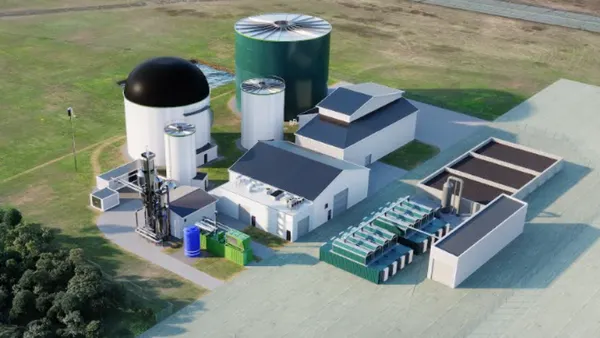Dive Brief:
- Matthew Tipper, a vice-president at Shell, announced that the oil giant plans to produce a significant volume of advanced biofuels by the end of the decade.
- The company will most likely set up operations in the southeast part of the country and focus primarily on woody biomass and feedstock.
- Capital projects for the production plan include a $105 million award from the USDA to Fulcrum for its MSW plant in Nevada, a grant from Red Rocks Biofuels for a plant in Oregon that uses woody biomass, and a proposed project by Emerald Biofuels to build a plant on the Gulf Coast using waste fats.
Dive Insight:
Tipper announced the plans during a presentation at ABLCNext, an Advanced Bio-economy Leadership conference in San Francisco. He said that $1.6 billion of capital projects were completed this year and that advanced biofuels will become a “critical parts of our transport fuels portfolio.”
Tipper continued by saying that Shell’s largest operation in the alternative energy business is a joint venture with Cosan in Brazil. Cosan operates a facility that produces 2.2 billion liters of ethanol, 4.4 million tons of sugar, and creates energy from sugar cane waste or bagasse.
The south and southeast is becoming a hub for these sorts of projects. In September, NFR BioEnergy CT LLC announced a $312 million energy project in Louisiana. The firm will install bio-refineries at more than 10 sugar refining hubs in the southern part of the state and plans to convert bagasse into hardened energy pellets which will be used as a fuel source at power plants around the world.









